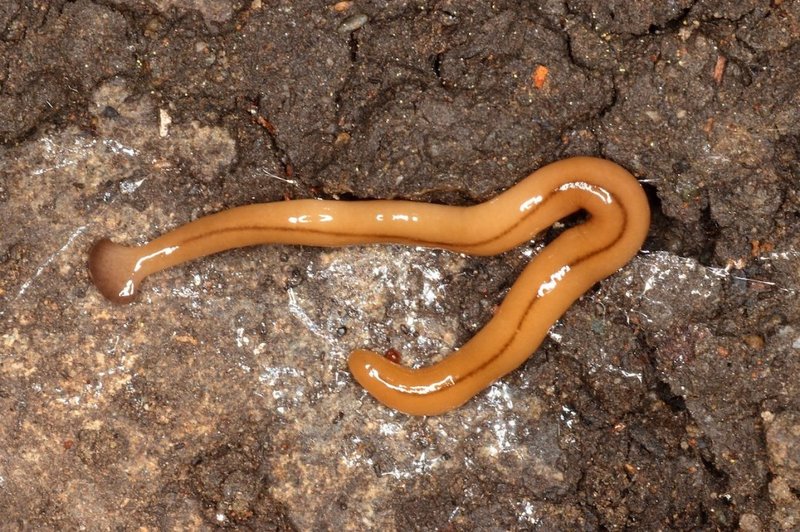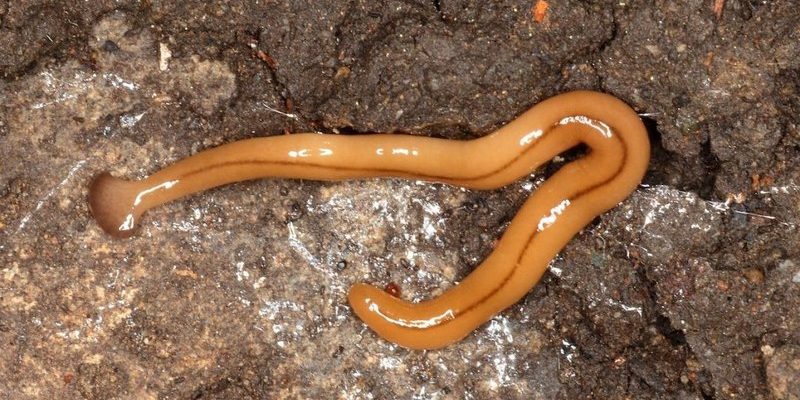
So, how do you keep these slithery intruders from taking over your gardening paradise? It’s all about understanding what attracts them and how you can create an environment that discourages their presence. With just a few simple practices, you can make your garden less inviting to hammerhead worms. Let me walk you through some easy-to-follow tips that will not only keep these pests away but also enhance the overall health of your garden.
Understanding Hammerhead Worms: What Are They?
Before we dive into the cleanup practices, it’s helpful to understand what hammerhead worms are. These creatures are often identified by their distinctive hammer-shaped heads. They’re typically brown or gray and can grow up to 10 inches long. Found mostly in warm climates, they thrive in moist environments. Hammerhead worms are carnivorous, feeding on earthworms, which are essential for a healthy garden soil.
But why are they a problem? When hammerhead worms multiply, they can significantly reduce the earthworm population. Earthworms improve soil structure, drainage, and nutrient availability. So, you can see how a few of these flatworms can wreak havoc in your garden. Knowing this, it’s crucial to take action to prevent them from settling in.
1. Regular Garden Cleanup
One of the best ways to prevent hammerhead worm infestations is through consistent garden cleanup. Think of your garden as a canvas; when it’s cluttered with debris, it becomes a perfect hiding place for these slithery invaders. Here’s what you can do:
- **Remove debris regularly**: Regularly clear away fallen leaves, branches, and other debris. These materials can hold moisture, creating ideal conditions for hammerhead worms to thrive.
- **Clear out weeds**: Weeds can also attract pests, including hammerhead worms. They provide hiding spots and nourishment. Keep your garden tidy by removing them frequently.
- **Trim overgrown plants**: Dense foliage can create humid environments. Pruning your plants not only helps with airflow but also reduces places for pests to hide.
Getting into the habit of cleaning your garden regularly not only reduces the chances of hammerhead worms but also improves the overall health of your plants. It’s a win-win!
2. Adjusting Watering Practices
Watering is another critical factor in keeping hammerhead worms at bay. These worms love moist environments, so if your garden is frequently waterlogged, you might be inviting trouble. Here’s how to adjust your watering practices:
- **Water early in the day**: Try to water your plants in the morning. This allows the soil to dry out during the day, creating less favorable conditions for hammerhead worms.
- **Use drip irrigation**: If possible, switch to drip irrigation. This method delivers water directly to the roots, reducing excess moisture on the surface where worms might thrive.
- **Check drainage**: Ensure your garden has good drainage. If water tends to pool, consider amending the soil with organic matter to improve drainage.
By modifying your watering routine, you can create a less inviting environment for hammerhead worms, while still keeping your plants hydrated and healthy.
3. Creating Natural Barriers
Another clever strategy to deter hammerhead worms is to establish natural barriers in your garden. Just like a well-placed fence can keep pests out of your yard, certain plants can make your garden less appealing to these flatworms. Here are a few ideas:
- **Plant herbs**: Strong-smelling herbs like rosemary, mint, and sage can deter pests. They create an aromatic barrier that many pests, including hammerhead worms, dislike.
- **Grow marigolds**: These cheerful flowers not only add beauty to your garden but also help repel various pests. They can act as a natural shield against unwanted guests.
- **Build raised beds**: If you can, consider planting in raised beds. They offer better drainage and make it harder for worms to enter your planting area.
Using plants as natural barriers not only looks lovely but also promotes a healthier garden overall.
4. Maintaining Soil Health
Healthy soil is the foundation of a thriving garden. When the soil is rich in nutrients and organisms, it can naturally deter pests, including hammerhead worms. Here’s how to maintain good soil health:
- **Add organic matter**: Incorporate compost and well-rotted manure into your soil. This enriches the soil and helps maintain its structure, making it less hospitable for flatworms.
- **Rotate crops**: Implement a crop rotation system. Changing the types of plants you grow each season helps disrupt the life cycles of pests.
- **Test soil pH**: Regular soil testing can help ensure your garden’s pH is balanced. Healthy soil encourages beneficial organisms that can keep pests in check.
Investing time and effort into maintaining soil health pays off in the long run. You’ll not only discourage hammerhead worms but create a flourishing environment for your plants.
5. Using Non-Toxic Methods for Management
If you find hammerhead worms have already made themselves at home in your garden, don’t worry. There are non-toxic methods to manage their population without harming your landscape. Here are a few approaches you might consider:
- **Handpicking**: This might seem tedious, but manually removing hammerhead worms can be effective. Wear gloves and pick them off your plants and soil. Make sure to dispose of them properly to prevent their return.
- **Diatomaceous Earth**: Sprinkling food-grade diatomaceous earth around your plants can help deter hammerhead worms. It’s a natural powder that damages their outer layer, leading to dehydration.
- **Soapy Water**: A simple mixture of soapy water can also be effective. Spray it on the worms directly to eliminate them. Just be careful not to harm your garden plants.
By using these methods, you can manage the hammerhead worm population without resorting to harsh chemicals that could harm your garden ecosystem.
6. Educating Yourself and Neighbors
Knowledge is power, right? Educating yourself about hammerhead worms and sharing that knowledge with others can create a community effort to tackle this growing problem. Here’s how to spread the word:
- **Join gardening clubs**: Engage with local gardening clubs or community groups. They often host discussions and share tips on pest management.
- **Share resources**: Create or share informational flyers about hammerhead worms. Highlight what they are, how to identify them, and effective cleanup practices.
- **Organize cleanup days**: Get your neighbors involved in garden cleanup days. It’s a fun way to work together and keep everyone’s gardens healthy and pest-free.
By working as a community, you can significantly reduce the hammerhead worm population and cultivate a thriving gardening space for everyone.
In conclusion, tackling hammerhead worms doesn’t have to be a daunting task. By incorporating these garden cleanup practices, you can create an environment that naturally discourages these pests. Regular cleaning, mindful watering, creating natural barriers, maintaining soil health, and using non-toxic management methods are all effective steps. Plus, by educating yourself and your community, you can make a more significant impact.
Just remember, every small effort you make helps your garden flourish while keeping those unwelcome hammerhead worms at bay. Happy gardening!

